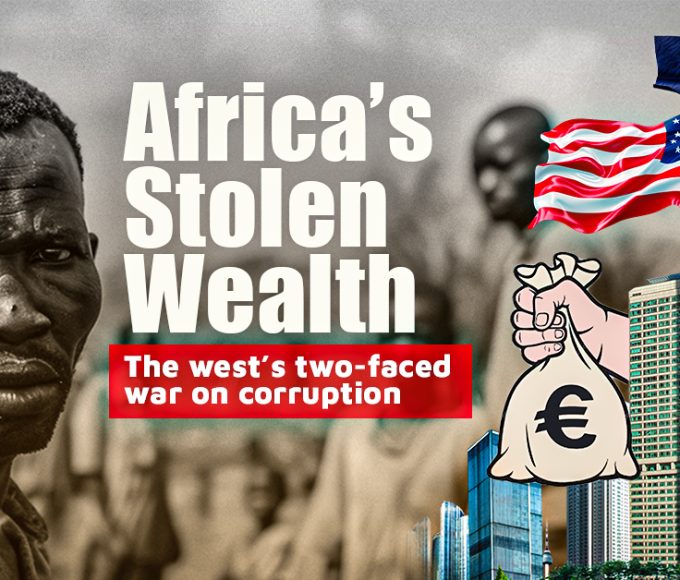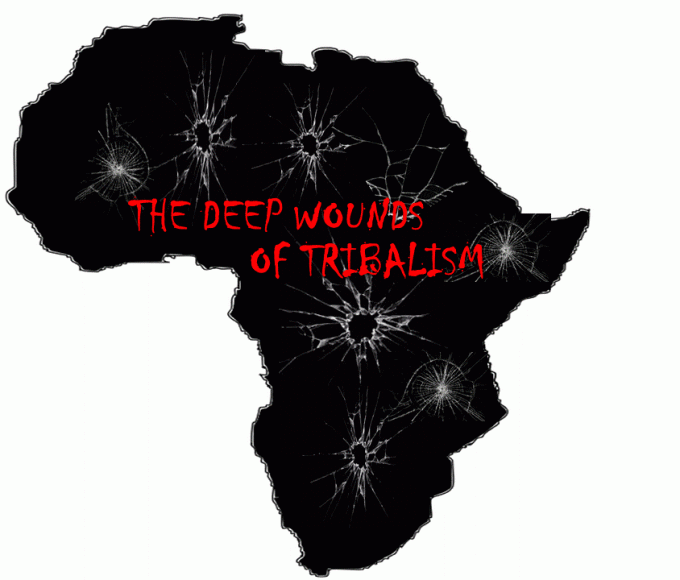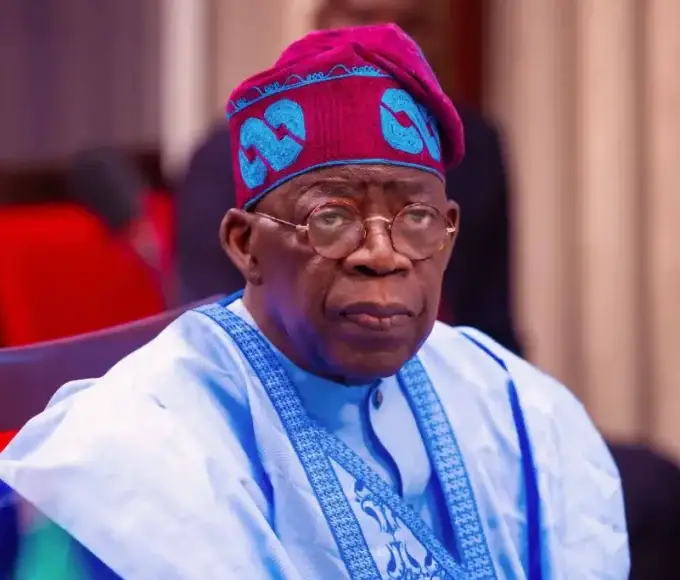
Recap: Some Major Events that Shaped 2023

2023 is a year marked by thrilling triumphs, heart-wrenching losses, and shifts in the landscape of sports, politics, and entertainment. They unfolded in an unparalleled fashion.

However, amidst the celebrations, the tragedies were stark, as seen in the heartbreaking loss of Christian Atsu amidst the devastating earthquake in Turkey and Syria.
The political arena echoed Nigeria’s tense elections and economic turbulence, while the globe witnessed the controversial coronation of King Charles III in the United Kingdom.
In the domain of entertainment, the year sparkled with Rihanna’s electrifying Super Bowl performance and the vibrant presence of Burna Boy and Tems at the Met Gala. 2023 left an indelible mark, where triumphs mingled with tragedies and controversies intersected with celebrations, etching an unforgettable chapter in the annals of history.
The year also stands out as a period marked by pivotal shifts in both the global economy and the realm of international security. Also characterised by a complex interplay of economic challenges and geopolitical maneuvers that have far-reaching implications.
From critical economic reforms and innovative financial technologies to escalating security tensions, 2023 was a year that will be remembered for its profound impact on the global stage.
In Sports:
- CAF Awards

The 2023 CAF Awards ceremony, held in Marrakech, Morocco, brought African football’s elite together. The CAF Player of the Year award, the pinnacle of individual honours in African football, was fiercely contested. The finalists—Victor Osimhen, Achraf Hakimi, and Mohamed Salah—showcased their exceptional talent, while Asisat Oshoala faced strong competition from Thembi Kgatlana and Barbara Banda in the women’s category.
- Manchester City’s Historic Triumph

Manchester City etched their name in history by securing the Champions League title with a nerve-wracking 1-0 victory over Inter Milan. This triumph completed a historic treble, solidifying their dominance on the European stage and cementing their place in football history.
- Christian Atsu

The former Premier League footballer, who played for both Newcastle United and Chelsea, went missing following the devastating earthquake in Turkey and Syria in February. His body was later discovered. The earthquake in Turkey and Syria led to more than 45,000 deaths, with thousands more injured. It has ruined the lives of millions, with many people left without access to water, electricity, or heat during a bitterly cold winter in the region.
- Djokovic’s Grand Slam Record

Novak Djokovic’s incredible prowess continued as he triumphed at the French Open, surpassing records in men’s Grand Slam titles. His remarkable skill and unwavering determination propelled him to the summit of tennis greatness.
- Messi’s Move to Inter Miami and 8th Balon d’Or

The announcement of Lionel Messi’s signing with Inter Miami in Major League Soccer sent shockwaves across the football world. His arrival marked a significant moment for the sport in the United States, captivating fans and elevating the profile of MLS to new heights. To cap off what was a bit of a rollercoaster year for Messi, he was rewarded with the most prestigious individual award in the sport. Sharing the podium with young superstars Kylian Mbappe and Erling Haaland, the 36-year-old Messi won the Ballon d’Or by 105 points over the Manchester City striker. It marked the eighth time the Argentinian has won the Ballon d’Or. No other player has won more than five (Cristiano Ronaldo). It will very likely be the last time Messi wins the award, but he now holds a record that could genuinely be impossible to break.
- Ronaldo’s move to Saudi Pro League

Ronaldo signed for Al Nassr in January, six weeks after his contract with United was terminated by mutual consent following an interview with Piers Morgan. Since joining Al Nassr, Ronaldo has frequently spoken of his belief that the Saudi Pro League is on course to become one of the best domestic competitions in the world.
- Spain’s Women’s World Cup Victory and Controversy

Spain’s historic win at the Women’s World Cup, defeating England 1-0 in the final, marked a momentous achievement for the team. However, the celebration was marred by controversy as Royal Spanish Football Federation President Luis Rubiales faced serious allegations of inappropriate behavior, notably involving midfielder Jennifer Hermoso during the trophy ceremony.
In Politics:
- 2023 General Elections and Surrounding Issues
Shadows in Democracy: Unveiling the Tapestry of Nigeria’s 2023 Presidential Election
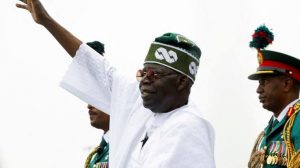
In the tapestry of Nigeria’s political landscape, the 2023 presidential election unfolded as a gripping saga, marked by the rise of unexpected contenders, allegations of impropriety, and the echoes of a nation seeking change. This expansive narrative explores the intricacies of the electoral process, delving into the stories that shaped a nation at a crossroads.
The Prelude: Eight Years of Turmoil Under Buhari

The stage was set against the backdrop of Muhammadu Buhari’s eight-year presidency, characterized by economic struggles and political turbulence. Nigerians, weary of a nation grappling with the title of the world’s poverty capital and two recessions in five years, yearned for a new era as the Buhari administration reached its twilight.
The Unlikely Contender: Peter Obi and the Labour Party

Amidst the traditional political dichotomy between the Peoples Democratic Party (PDP) and the All Progressives Congress (APC), a new player entered the arena—the Labour Party, championing Peter Obi as its leader. Obi, a former two-term governor of Anambra, embarked on a journey that would capture the imagination of a nation seeking change.
The Labour Party’s unprecedented success in the recent general elections, particularly in legislative seats, marks a revolutionary movement embraced by Nigerians seeking change from the incumbent government. Despite Peter Obi’s loss in the presidential election amid allegations of rigging, the party secured one governorship position and achieved historic results in the legislative arm, winning eight senatorial seats and 34 seats in the House of Representatives. The Obedience Movement, gaining momentum since 2022, played a significant role in the party’s surge, reflecting the desire for transformation and political renewal among the Nigerian populace.
Peter Obi’s Journey: From Capitalist to Political Disruptor
Peter Obi’s journey unfolded as a narrative of unexpected twists. A wealthy capitalist and establishment figure, Obi became the face of political disruption. From early business successes to a tumultuous tenure as Anambra governor, his story challenged norms. His frugality and transparent governance became both shield and sword, challenging critics to find any trace of corruption during his leadership.
The ‘Obidients’ Movement: Social Media as the Battlefield
Obi’s candidacy ignited a fervent movement among Nigeria’s youth—the ‘Obidients.’ Operating on the battlefield of social media, they championed Obi’s cause, creating a wave of enthusiasm that rippled through the electorate. Volunteer groups and even Nollywood joined the chorus, producing a movie showcasing Obi’s journey and cementing his status as a symbol of hope.
The Pandora Papers and Unanswered Questions?
As the election unfolded, Obi faced accusations stemming from the Pandora Papers investigation of 2021, revealing offshore holdings in tax havens. While supporters praised his principled stance, critics pointed to potential financial irregularities. Obi’s promise to appoint a special counsel to prosecute corruption cases added another layer to his quest for transparency and accountability.
The Contestants and Their Chequered Pasts

As the election drama unfolded, the contenders carried not just political banners but also baggage laden with controversies. Bola Ahmed Tinubu, a pivotal figure in Buhari’s historic victory, faced allegations of a shadowy past, including drug dealing and age falsification. The APC candidate’s choice of running mate, Kashim Shettima, further heightened divisions in a religiously diverse nation.
On the opposing side stood Atiku Abubakar, haunted by corruption allegations, and Rabiu Kwankwaso, a former governor from the north, representing the New Nigeria People’s Party (NNPP). Both contenders wielded considerable resources, prompting questions about their pursuits and implications for the nation’s future.
David Hundeyin’s Exposé: Unraveling the Alleged Impostor

Amidst the election fervor, journalist David Hundeyin’s investigative report exposed an alleged impostor, “Durojaiye Ogunsanya,” who claimed to be Bola Tinubu’s classmate. The report raised questions about the reliability of information and the role of independent media in objective journalism. Hundeyin’s work underscored the critical need for transparency and truthfulness in reporting, impacting the 2023 political landscape in West Africa.
The Election Day Drama: From Polls to Protests
On February 25, as Nigerians headed to the polls, a record-high number of new voters added complexity to an already intricate electoral landscape. Reports of violence, irregularities, and logistical challenges marred the election day, raising questions about the integrity of the process.
The Aftermath and an Uncertain Future: Shadows of Uncertainty
The results declared Bola Tinubu as the victor, leading to protests and a call for unity. However, allegations of rigging and flaws in the electoral system persisted. The disillusionment among the youth, who had hoped for a new era under Obi’s leadership, echoed across the nation. As Nigeria navigates the aftermath of this contentious election, the shadows of uncertainty loom large. The complexities and contradictions exposed during this electoral journey cast a spotlight on the challenges inherent in the quest for true democracy. The nation stands at a pivotal juncture, grappling with questions of leadership, integrity, and the very essence of its democratic identity. The echoes of this election will undoubtedly resonate for years to come, shaping the narrative of Nigeria’s political landscape.
- Legal Battle, Electoral Violence, and Sociopolitical Strife Of Nigeria’s 2023 Presidential Election

The recent Nigerian presidential election was marred by violence and allegations of rigging, particularly involving the APC party. Despite claims of irregularities and a desire for change among the youth, Bola Tinubu of the APC emerged as the winner. The opposition parties, led by Atiku Abubakar and Peter Obi, challenged the results, citing flaws in the voting system and asserting that Tinubu lacked qualifications. Both the tribunal and the Supreme Court ruled in favour of Tinubu, dismissing the opposition’s claims, including allegations of electoral malpractice and insufficient qualifications. The court also rejected accusations of vote manipulation and claims that Tinubu had forged academic credentials. Unfortunately, this legal process failed to address concerns raised by Nigerians, with no successful legal challenges to presidential election outcomes in the country’s history.
The election witnessed a record-low turnout of 29%, reflecting a widespread lack of faith in the electoral process. Moreover, the poll was marked by logistical problems, delays, and allegations of violence and irregularities. Tribes were divided, with reports of the Yoruba community resisting the “Igbo” vote in certain states. Despite the challenges faced by the country, including economic difficulties, security issues, and social unrest, the election results were upheld, leaving many dissatisfied with the outcome. The hopes for change, especially among the youth supporting Peter Obi, were dashed, leading to disappointment and frustration among the Nigerian population.
- The Coronation of King Charles III and Camilla
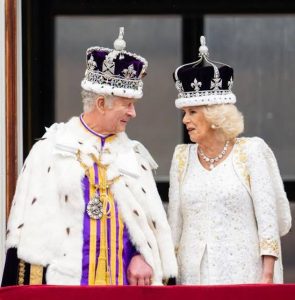
Charles III and Camilla were coronated as king and queen of the United Kingdom and the Commonwealth realms on May 6, 2023, at Westminster Abbey. The ceremony, incorporating Anglican traditions, highlighted Charles’ spiritual role and secular duties. Camilla had a simpler coronation. The event, modified for inclusivity, drew both celebrations and protests in the UK, with a mixed public response. The festivities included a state procession, balcony appearances at Buckingham Palace, and various celebrations. In the Commonwealth realms, reactions varied, with some expressing republican sentiments. This marked the first British monarch coronation in the 21st century, held at Westminster Abbey, continuing a tradition since William the Conqueror in 1066.
- Former President Donald Trump Struggling To Run For Office

Former President Donald Trump has been removed from the 2024 presidential primary ballot in Maine due to his alleged support of insurrection. The state’s Secretary of State, Shenna Bellows, cited a constitutional clause barring those involved in insurrection from holding public office. Trump’s campaign plans to challenge the decision in court, accusing Bellows of attempting to disenfranchise voters. This comes after a similar ruling in Colorado. Trump faces criminal charges related to the 2020 election but has not been charged with insurrection. Maine’s decision could impact the 2024 election dynamics due to its unique electoral vote-splitting arrangement.
- The Gabon Coup

Gabon’s presidential election on August 26, 2023, led to incumbent Ali Bongo’s controversial victory, triggering allegations of fraud and irregularities. Opposition figure Albert Ondo Ossa contested the results. Amidst protests and scrutiny, a pre-dawn coup on August 30 by the Armed Forces ousted Bongo’s regime, citing governance issues. Bongo and key officials were arrested, facing charges ranging from treason to corruption. Brigadier General Brice Oligui assumed the interim presidency, promising democratic reforms. The coup drew international criticism. Oligui later appointed a transitional government, including opposition figures, and announced elections for August 2025. Bongo was released for medical reasons in September.
In Entertainment:
- Hilda Bacci – Breaking Guinness Record

Hilda Baci aimed to break the record for the longest cooking marathon, originally set at 87 hours, 45 minutes. Her attempt, titled “Cook-a-thon,” started on May 11, 2023. Baci successfully surpassed the previous record, extending her goal to 100 hours. Notable personalities, including Governor Sanwo-Olu and singer Tiwa Savage, showed support. Guinness World Records initially awaited evidence and, upon review, confirmed Baci’s record at 93 hours, 11 minutes. However, in November 2023, Alan Fisher, an Irish chef, surpassed her achievement, cooking for 119 hours and 57 minutes, breaking both individual cooking and baking marathon records. Baci gracefully congratulated Fisher on his success.
- Rihanna’s Electrifying Super Bowl LVII Halftime Show

One of the entertainment highlights in 2023 was Rihanna’s headline performance at the Super Bowl LVII halftime show. Rihanna, making her first live appearance in five years, delivered a compelling performance, receiving acclaim for her stage presence. The show garnered positive reviews, with critics praising her seamless execution and distinctive style. Notably, Rihanna’s announcement of her pregnancy added a surprise element to the event, making it a memorable moment in entertainment for the year.
- Burna Boy and Tems Steal the Spotlight with first Afrobeats stars at the 2023 Met Gala

In 2023, Nigerian Afrobeat stars Burna Boy and Tems stole the spotlight at the Met Gala with their bold fashion choices, showcasing the rich diversity of African culture. Burna Boy’s modern twist on the traditional Agbada attire by Burberry, reflecting his Nigerian heritage, and Tems’ elegant Robert Wun gown combined futuristic and nostalgic design elements, making a significant statement on the global stage. Their attendance not only celebrated the influence of African music but also marked a pivotal moment for representation, highlighting progress in the fight for diversity and inclusion in the entertainment industry. The duo’s strong presence and impactful fashion statements at the Met Gala stood out as a defining moment in entertainment for 2023.
- The Barbenheimer Phenomenon: Christopher Nolan’s ‘Oppenheimer’ and Warner Bros

The “Barbenheimer” phenomenon emerged as a notable entertainment highlight in 2023, stemming from the strategic release clash between Christopher Nolan’s “Oppenheimer” and Warner Bros.’ “Barbie” on July 21. This clash led to a social media trend, with fans creating memes and merchandise and even coining the term “Barbenheimer.” The unique double feature sparked debates on viewing order, with Hollywood personalities and internet users engaging in the discussion. Margot Robbie and Issa Rae, key figures in “Barbie,” suggested different viewing orders, adding an intriguing layer to the phenomenon. The Barbenheimer instance highlighted the concept of counterprogramming in the film industry and drew parallels to past instances, contributing to a broader trend of studios creating similar events around their releases.
- Davido’s Triumphant Return: ‘Timeless’ Album

In 2023, Davido’s “Timeless” album emerged as a significant entertainment highlight. Following a challenging period marked by personal loss and a social media hiatus, Davido announced the album’s release on March 31, marking his return to the spotlight. “Timeless” represented the first album in three years and aimed to be a classic, a goal suggested by record producer Don Jazzy. The album underwent three phases before its final version, featuring 17 tracks with collaborations from artists like Skepta, Angelique Kidjo, and more. Davido described it as a “miracle album” during an interview, recording an impressive 62 tracks for the project. The album’s unique cover art and diverse collaborations contributed to its distinction as a noteworthy entertainment moment in 2023.
- Beyoncé’s Renaissance World Tour

In 2023, Beyoncé’s Renaissance World Tour became a standout entertainment highlight. Kicking off with a unique teaser, where she auctioned a charity ticket, the tour generated anticipation. Beyoncé strategically rented Europe’s largest indoor arena for rehearsals and announced the tour in March, incorporating significant efforts in stage design and personnel selection. Despite facing a knee injury, Beyoncé delivered a mesmerizing show lasting two and a half to three hours, structured into six distinctive acts. The tour featured elaborate visuals, including an undersea-themed act and a provocateur-themed section, creating immersive experiences for the audience. The Renaissance World Tour showcased Beyoncé’s musical prowess, extraordinary stage presence, and innovation in performance, making it a noteworthy entertainment spectacle in 2023.
In Economy:
- The Nigerian Naira Scarcity Trauma

Nigeria faced an acute cash shortage in February, causing distress and hardship as citizens struggled to withdraw money due to the currency redesign announced by the Central Bank of Nigeria (CBN). The rushed implementation and delayed circulation of new notes added to the challenges. The scarcity, compounded by economic policies, led to protests and price hikes on POS transactions. President Buhari assured improvements, but the situation persisted, with reports of corruption and frustrations. In a surprising turn, the CBN governor, Godwin Emefiele, was suspended and later arrested in June, facing allegations of financial misconduct. The cash scarcity continues, impacting citizens’ lives and raising concerns about the nation’s economic stability.
2. The Global Financial Market Was Shaken

March 10-12 saw two major US banks shut down, Silicon Valley Bank and Signature Bank. In just 72 hours in 2023, both banks went bankrupt due to liquidity losses. On May 1, another bank in the US named First Republic Bank went bankrupt. When adjusted for inflation, the combined assets of the three banks (totalling over $500 billion) surpassed those of the 25 banks that failed during the global financial crisis. The failure of these three banks has been called “the most consequential US banking crisis since 2008”. Undoubtedly, it negatively impacted the US economy which was already plagued with soaring inflation. In 2023 also, Credit Suisse, the second-biggest bank in Sweden, almost collapsed. But for the timely intervention of governments and central banks of several countries, the global financial market would have hit close to rock bottom.
- AI Fever and Massive Job Losses

source: Forbes
In 2023, Artificial Intelligence (AI) and Large Language Models (LLMs) trended heavily. These technological phenomena witnessed a remarkable surge in popularity and application. It was like a fever that caught people across numerous sectors and spheres. The upswing in interest can be attributed to ChatGPT’s success and the subsequent launch of a much-improved model, GPT-4, on 14 March 2023. This rapid advancement has not been without its challenges. One of the most significant repercussions has been its impact on the job market. The year 2023 saw a noticeable shift in employment patterns, with people losing their jobs due to the integration of AI technologies into business processes. Roles traditionally held by humans, especially those involving routine tasks or basic content creation, faced a decline as AI systems proved capable of performing these tasks more efficiently and at a lower cost. According to a CBS News report, in the United States alone, AI eliminated nearly 4,000 jobs in May 2023. In another report from ResumeBuilder, more than one-third (37%) of business leaders say AI replaced workers in 2023.
- Ethiopia Defaults On Sovereign Debt

In 2023, Ethiopia became the third African country to formally default on its sovereign debt in three years. The country failed to fulfil a $33 million coupon payment on its sole international government bond. A grace period was given for the country to meet its obligation, but it has failed to do so. Notably, Ethiopia sought debt relief in 2021, owing to pressures from the coronavirus pandemic and conflict in northern Tigray. Despite a truce to end its two-year civil war late last year, the country’s economy has remained under pressure with an annual inflation rate of 28%, foreign currency shortages, and growing debt repayments. These events hampered Ethiopia’s capacity to meet its obligation. The default places Ethiopia, Africa’s second most populous country, among a growing number of emerging economies that have defaulted on their debt in the aftermath of the pandemic. Ethiopia aims, however, to renegotiate obligations through the G20’s common framework, similar to Zambia and Ghana.
- Removal of Fuel Subsidy

In his inaugural speech on 29 May, President Bola Tinubu announced the total removal of fuel subsidies in Nigeria. Before 2023, attempts to remove the controversial fuel subsidy were met with strong opposition and protests. While many Nigerians echoed that the fuel subsidy was their only benefit from the government, realistically, the subsidy was pushing the country into a financial pit. Not only did the high cost of maintaining the subsidy impose a decline in infrastructure and other essential sectors like education and health, but it also kept increasing Nigeria’s public debt stock. In 2022, the Nigerian government borrowed a whopping N1trn to finance fuel subsidies.
According to a report, households in the bottom 40% of Nigeria’s income distribution accounted for less than 3% of all fuel purchases. Who was benefiting from the subsidy then? Private firms, businesses, and smugglers bought large volumes of petrol at Nigeria’s subsidized rate and sold at market prices in neighbouring countries! The subsidy needed to go, but with strategic countermeasures. President Tinubu’s abrupt announcement caused a significant increase in fuel prices alongside unbearably long queues at petrol stations due to panic buying. Fuel prices jumped from an official pump price of ₦185 to around ₦350, and subsequently ₦600+. This hike increased transportation fares and prices of goods and services and increased the already wide economic inequality in the country.
- David Hundeyin Unmasks Deceit: Exposing the Nigeria Air Scandal as Government Fraud, Unity Bank Investigative Report

David Hundeyin uncovered a major fraud surrounding the launch of Nigeria Air, exposing the government’s claim of acquiring a Boeing 737-800 as false. Despite celebrations by APC members, Hundeyin revealed the aircraft belonged to Ethiopian Airlines and had an active history with them. He provided evidence, including Flight Radar24 data, contradicting the official narrative. APC members attacked Hundeyin, but he stood firm. Eventually, on June 6, 2023, Nigeria Air’s Managing Director admitted the fraud, corroborated by the Senate Committee on Aviation. This revelation marked one of West Africa’s significant economic stories, emphasizing the importance of investigative journalism in exposing government deceit.

David Hundeyin’s extensive investigative report exposes the financial malfeasance orchestrated by Thomas Akoh Etuh during his tenure as Chairman of Unity Bank. Etuh allegedly inflated the Non-Performing Loan (NPL) accounts to over 20,000, reaching a staggering N400 billion by his retirement. Through Compliance Fraud and issuance of “Liars Loans,” Etuh purportedly followed a fraudulent financial formula, causing catastrophic damage to Unity Bank. He is accused of orchestrating a distress sale to Frontier Capital Alternative Assets Limited (FCAAL), a company linked to him, selling NPLs worth nearly half a trillion naira for a mere N6 billion. Despite red flags, Unity Bank continued to operate with negative share capital. The regulatory lapses and potential merger plans with Providus Bank raise serious concerns, prompting calls for thorough investigations by the Central Bank of Nigeria (CBN), Nigeria Deposit Insurance Corporation (NDIC), and the Economic and Financial Crimes Commission (EFCC). This scandal marks a significant economic story in Nigeria for 2023.
- Twitter Vs X

In 2021, Twitter was ranked the second-most popular social media platform in terms of daily time spent. In October 2022, after tough negotiations and court hearings, popular business tycoon Elon Musk bought the app for $44 billion. The change in ownership resulted in the layoff of nearly half of the workforce, and in 2023, more changes followed. The changes in 2023 included a new CEO, Linda Yaccarino, and Musk renaming Twitter to “X” in July, a move that has been criticized by many business analysts. In October 2023, X’s value reportedly dropped to more than half of the purchase price. The platform recorded a decrease in the number of users and lost tens of millions of dollars in advertising revenue. In late December, the European Union formally raised concerns that X might be breaking its rules on handling disinformation and illegal content. Clearly, in 2023, Elon Musk’s ownership was a subject of financial tumult and controversy.
In Security:
- Sudan Conflict

source: Anadolu Ajansi
Following the end of ex-Sudan leader Omar al-Bashir’s 30-year regime in 2019, a power-sharing agreement was formed between the military and civilians. This was to facilitate fair elections. By the end of 2021, progress toward democracy was halted by a military coup in Sudan that involved both the Sudanese Armed Forces (SAF) and the Rapid Support Forces (RSF). The two military factions largely marginalized Sudanese civil society in national affairs.
In 2023, the tensions existing between the two factions continued to escalate. By 15 April 2023, violent clashes erupted in Sudan’s Capital, Khartoum, heightening concerns of a potential full-blown civil war. The conflict, primarily a battle for supremacy and resources between the SAF and the RSF, led by General Abdel Fattah al-Burhan and Mohamed Hamdan “Hemedti” Dagalo, respectively, has significantly undermined hopes for a democratic transition. The eight-month conflict has evoked reports of war crimes, large-scale massacres, widespread displacement, and a deteriorating humanitarian situation. A cholera outbreak has compounded the crisis, and the suspected cholera cases continue to increase and reached 8,536 as of December 26. Over 7.2 million people have fled their homes, with the death toll reaching 9,000- yet a resolution is not in sight.
- Coup Across Africa
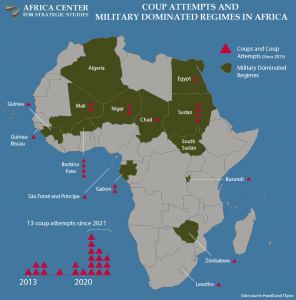
Over the past three years, West Africa has witnessed a series of anti-colonialist military coups involving countries like Guinea, Burkina Faso, Chad, and Mali. This trend continued in 2023.
July 26 2023 saw a coup in Niger, where the military overthrew President Mohamed Bazoum. In an unsuccessful move to curb the alarming terrorist activities across the Sahel, Bazoum had engaged French troops. His failure triggered a revulsion against both his leadership and France, Niger’s former colonial power. Bazoum was accused of representing Western interests. In line with the anti-Western sentiments, the military-led government deported the French ambassador and dismissed the remaining French troops stationed in the Niger.
In Gabon, five weeks after Niger’s coup, the military ousted the long-standing civilian leader Ali Bongo Ondimba after a disputed presidential election. The coup evoked massive celebrations across Libreville, the country’s capital, as the Bongo dynasty has ruled Gabon for about 50 years. The year ended with Guinea-Bissau experiencing an “attempted coup” marked by violent clashes among army factions.
- Israel-Hamas War

The Israeli–Palestinian conflict is one of the longest-continuing conflicts known to man. In 2023, the conflict escalated to deadly heights. The Palestinian group Hamas caught Israel off guard by launching an unprecedented armed assault on 7 October. Hamas, officially designated a terrorist group by many countries, had won parliamentary elections in 2006 and, in 2007, violently seized control of the Gaza Strip from the internationally recognized Palestinian Authority. The Gaza Strip and West Bank are the only places left of the original Palestine heritage, thus Hamas’ resolution to liberate occupied Palestinian territories.
On October 7, in an operation called “Al-Aqsa Flood”, about 3,000 militants breached the Gaza–Israel barrier, attacking Israeli communities and military bases. The toll amounted to 695 Israeli civilians, 373 soldiers, and 71 foreigners killed, totalling 1,139 casualties, including some from friendly fire. An estimated 240 Israeli soldiers, civilians, and foreigners were taken to the Gaza Strip as hostages, with the stated goal of forcing Israel to release Palestinian prisoners. Justifying the attack, Hamas cited the “desecration of Al-Aqsa mosque,” Israeli occupation, Gaza blockade, illegal settlements, settler violence, and recent escalations.
Israel responded by dropping over 6,000 bombs on Gaza within 6 days of the attack, resulting in extensive destruction of Palestinian residences and numerous civilian casualties. Israel deployed heavy munitions, including 2,000-pound bombs, and proceeded with a large-scale ground invasion of Gaza, aiming to eliminate Hamas and bring its hostages home. Israel also imposed a blockade on Gaza, leading to allegations of using starvation as a weapon and forcing Gazans to consume contaminated, salty water. As of 2 January, it is reported that 22,000 Palestinians and Israelis in all have been killed in the Israel–Hamas war, including 77 journalists (70 Palestinian, 4 Israeli, and 3 Lebanese) and over 135 UNRWA aid workers.
- Plateau Killings on Christmas Eve
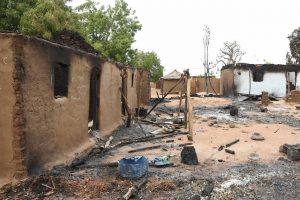
On Christmas Eve, at least 140 people were killed, and others are missing in a series of attacks by gunmen on remote villages in north-central Nigeria’s Plateau State. The attacks were carried out by military gangs, locally called “bandits,” and were blamed on the farmer-herder crisis. The violence occurred in at least 20 different villages, with gunfire still heard on Christmas morning. Plateau Governor Caleb Mutfwang confirmed that 15 people were buried on Christmas Eve alone, and authorities in Bokkos had counted not less than 100 corpses. More than 300 wounded people were reportedly taken to hospitals.
About The Author
Related Articles
Africa’s Stolen Wealth: The West’s Two-Faced War On Corruption, Condemning In Public, Laundering the Continent’s Future In Practice
While international bodies and Western governments publicly commit to combating illicit financial...
ByWest Africa WeeklySeptember 6, 2025When Power Breeds Madness: APC’s Culture of Reckless Rhetoric
In a country battling economic collapse, insecurity, and deep mistrust in governance,...
ByWest Africa WeeklyAugust 31, 2025Tribalism Is Not African: Africa’s Wounds Were Carved In Western Boardrooms And Remain A Colonial Tool Still In Use
The narrative of “tribal conflicts” plaguing Africa, often portrayed as an inherent,...
ByWest Africa WeeklyAugust 30, 2025Tinubu’s Nigeria: A Nation Held Hostage by Failure
When Bola Tinubu was sworn in as President in May 2023, Nigerians...
ByWest Africa WeeklyAugust 9, 2025








